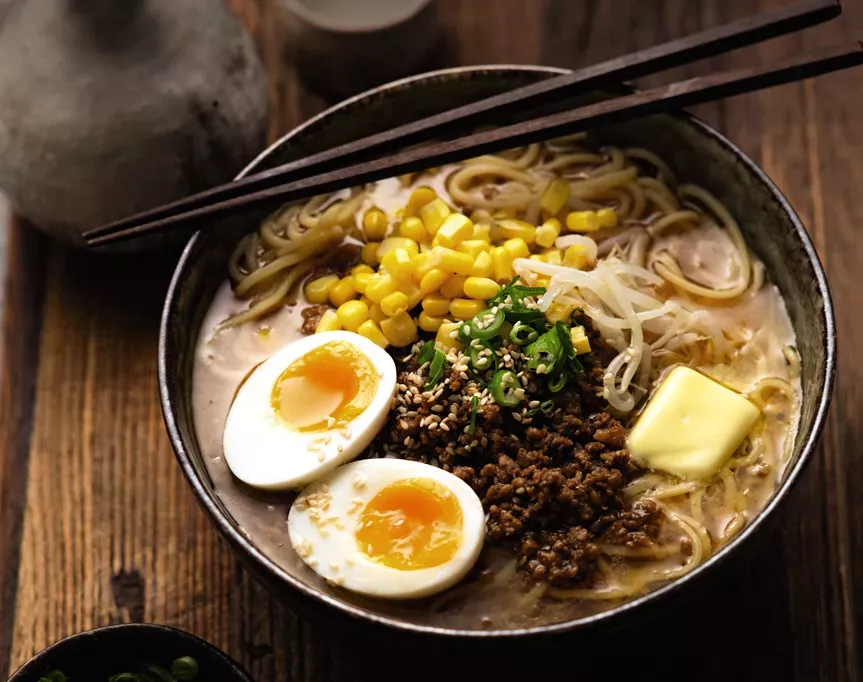jaclyn crupi’s love for pasta is a family tradition
Read the story behind Jaclyn's newest book, Pasta Love, which is a love letter dedicated to the beloved carb and to all the nonnas who make it.
Whenever I asked my nonna Paolina how her food tasted so good she would reply: ‘love’. She cooked with love. Of course the truth is she was highly skilled in the kitchen and taught many of her family members and friends how to cook. She enjoyed cooking and quietly revelled in the recognition she was given as one of the best cooks among a group of very talented cooks. And along with the love went the labour. Nonna worked hard in the kitchen and she passed her hard-won knowledge on. Hers was a home where many young women newly arrived in Australia from Italy would stay until they were married. She would teach them to cook; her way.
From a young age my job was turning the crank of the pasta machine while Nonna fed through the dough. I balanced on a stool wearing the apron my mum had made me (I still have it). I am now in no doubt that my ‘help’ with this task was actually a hindrance. Nonna would have gotten the pasta rolled much faster if I had gone and played with the My Little Pony she bought me (I still have it). But would pasta loom so large in my life if not for these moments?
When I set out to write a book about my obsession with pasta, I wanted to somehow return to those pasta-making sessions I shared with Nonna Paolina over the years. Nonna died in 2012, but the sound of the crank of the pasta machine never stopped. I have carried on her pasta-making ways. So too have the women she housed on their arrival in Australia. The moment I realised I could go and make pasta with those women as part of my research for the book was the moment I truly understood why I wanted to write about pasta in the first place.
I organised to make pasta with two women I have known my entire life and who have always been close family friends; I would make fettuccine with Amalia and lasagne with Onorina. Amalia and Onorina both cooked with Nonna Paolina many times and stayed at her home when they first arrived in Australia in their early 20s. They shared a bed with my then seven-year-old mother and went on to raise their families living next door to each other. Both of their husbands died far too young and they were a huge source of comfort and solace to each other.
It felt immediately comforting to walk into Amalia’s sparkling clean home and make pasta with her. This was what I was meant to be doing. This was how I should be spending my time. This was where Nonna Paolina’s pasta-making still existed. We shared a coffee and then got to work.
Of course, we did not make the pasta in the pristine kitchen, we made it in the pristine laundry (some of the best homemade Italian food in Australia is made in garages and laundries, keeping the kitchen in immaculate condition). Amalia’s pasta board fit over her laundry trough perfectly and while I took photos and asked questions and just generally got in the way, she kneaded an 8-egg dough. She laminated the pasta dough to silky perfection (I was allowed to turn the handle), left it to dry a little and then cut the pasta sheets into fettuccine. We ate some for lunch and then I was sent home with the rest. I still have some in my freezer – Amalia died in late 2022 and I’m not sure I can bring myself to eat it.
Next door at Onorina’s house, the pasta love continued. Every sentence Onorina speaks is punctuated with ‘cara’, ‘stella’, ‘tesoro’ – dear, star and darling. She exudes warmth and sweetness. We were in the laundry again (of course) but this time the pasta was rolled into long lengths that were taken into the kitchen and cooked in boiling water, before being plunged into an ice bath and then dried on the crispest white linen tea towels. Sixteen layers of pasta, ragu, bechamel and parmigiano were built. I was sent home with the entire lasagne. Onorina makes lasagne exactly the same way my nonna used to – it was as close to getting to cook with nonna again as I can get. It was magical.
While we cooked, we talked. Both women shared stories with me about their first years in Australia. I had tried to interview them before we started cooking but it felt weirdly formal and stunted. But once we got cooking, the stories poured out. They told me about the hardships they faced on arrival in a new country, their triumphs finding work the week they arrived, and their delight at seeing their children and now their grandchildren and great-grandchildren prosper. I asked questions about pasta expecting to find that they had had to adapt their pasta-making to their new country. I was wrong – their process hadn’t changed over decades of living in Australia.
Making something for another person that takes time and skill is an act of love. There was so much love in the pasta Amalia and Onorina made. But there was also a yearning for home. A desire to continue traditions. Food, like people, retains the essence of its origins. Their pasta tasted like Nonna Paolina’s pasta – it tasted like home. Jaclyn Crupi is the author of Pasta Love, out now with Affirm Press.
Jaclyn Crupi is the author of Pasta Love, out now with Affirm Press.














.jpg&q=80&w=316&c=1&s=1)













.jpg&q=80&w=316&c=1&s=1)










